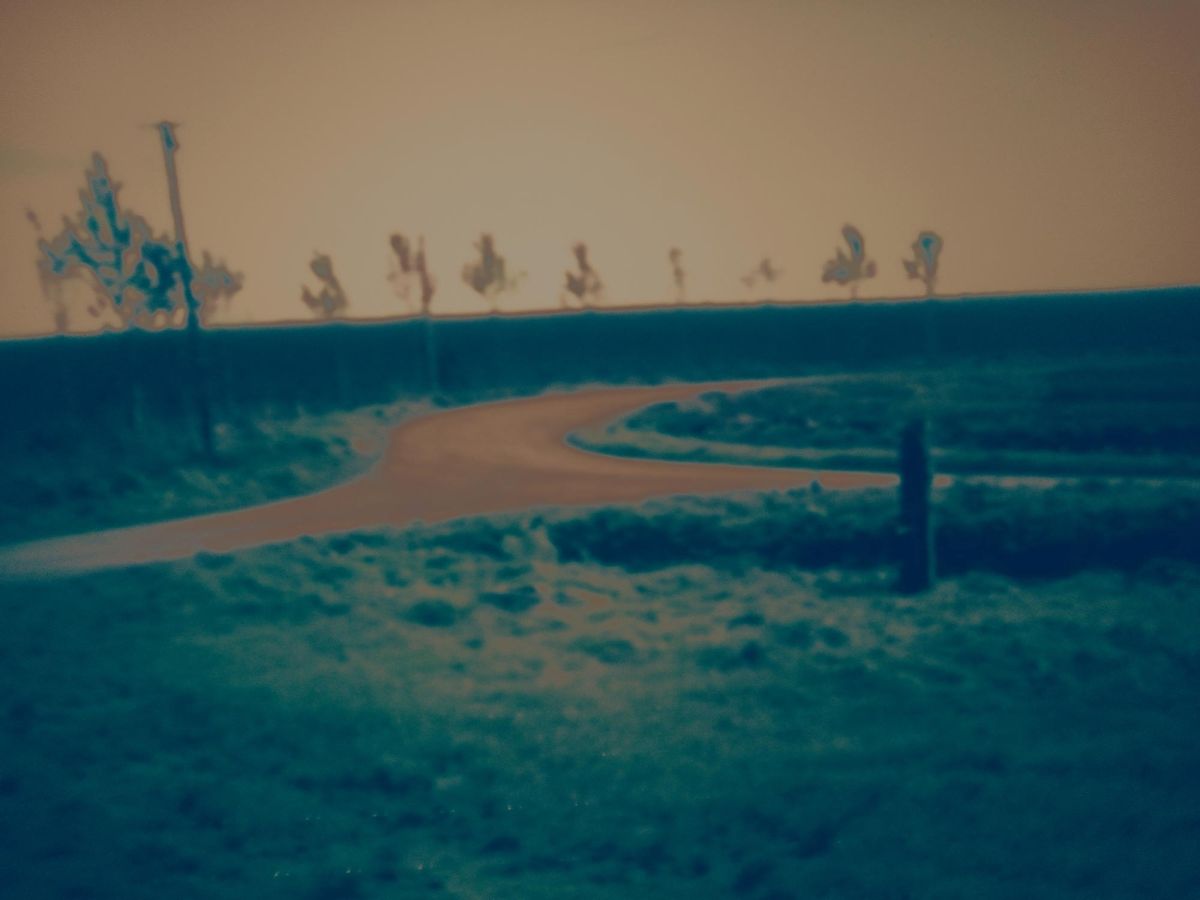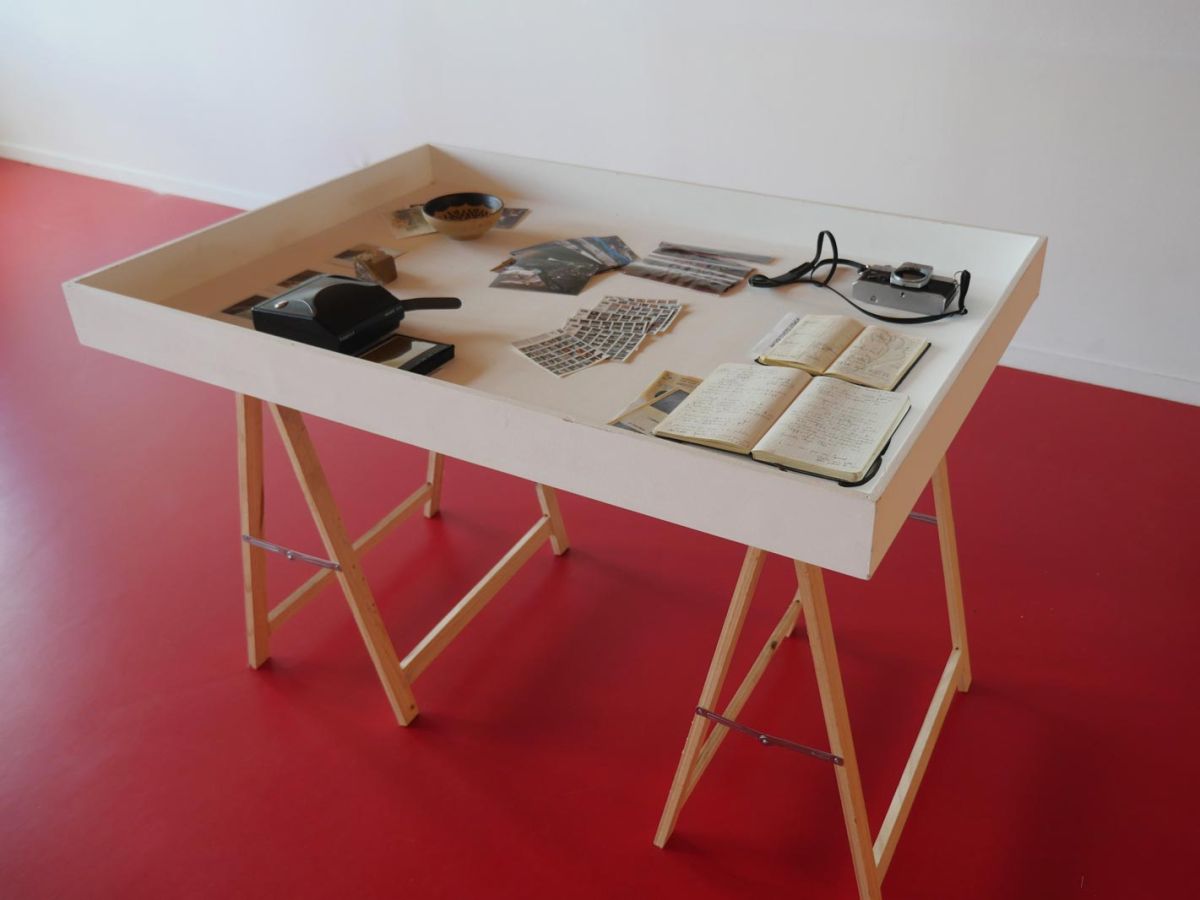Born in Dinan in 1968, he lives and works in Saint-Méloir-des-Bois and in Paris. After studying in the department of drawing and engraving at the Advanced School of Fine Arts in Paris, Vincent Victor Jouffe did not embark upon photography until he had made two journeys, one to the United States in 1990, the other to England in 1991. In 1995, the year when he set up home in Saint-Méloir-des-Bois, a rural village in the Côtes-d’Armor (northern Brittany), he started to put together a corpus of images related to that particular situation of the return to the native land. La promenade de l’Assomption, consisting of 17 Polaroids which record the hamlet of La Ville es Brets, is perhaps that programmatic work in which […]
Born in Dinan in 1968, he lives and works in Saint-Méloir-des-Bois and in Paris. After studying in the department of drawing and engraving at the Advanced School of Fine Arts in Paris, Vincent Victor Jouffe did not embark upon photography until he had made two journeys, one to the United States in 1990, the other to England in 1991.
In 1995, the year when he set up home in Saint-Méloir-des-Bois, a rural village in the Côtes-d’Armor (northern Brittany), he started to put together a corpus of images related to that particular situation of the return to the native land.
La promenade de l’Assomption, consisting of 17 Polaroids which record the hamlet of La Ville es Brets, is perhaps that programmatic work in which several parameters are developed: theoretical, historical and social, as well as biographical.
In considering both what is captured on the surface of these emulsions is a store of signs of the history of the place but at the same time that each image collides with that horizon of silence peculiar to the photographic act, he tries to make a representation of a territory in the long term, where the arrival of the same figures will make it possible to write in images a grammar peculiar to these landscapes which are always known and recognized.
His works can thus be read as stemming turn by turn from forms such as the illustrated notebook and social chronicle—that of a rural world in the thick of being uprooted with, for example, the most significant, the considerable body of more than 800 elements in the last country fairs in his canton. They are thus part of a tradition of landscape in which the human dimension invariably remains implicit: exterior views of the psychiatric home at Saint Jean de Dieu, fairground stands, tended wooded valleys, and unoccupied farm buildings. No institutional commission precedes the formation of these ensembles, which are often still in progress at the present time.
Since 2008, well aware of the productivist inflation in the art arena, he has been focusing on cultivating “an art of re-reading” where, borrowing certain experiments embarked upon in his studio during his Antony University residency, he brings together drawings from the 1990s, deliberately breaking the series, and including objects, mainly tools. The Eclats exhibitions and the three parts of Opus-corpus: un cabinet illustrate this new artistic direction. Since 2015 it is this same Jean Zay residence, which was the greatest architectural utopia in France in terms of student lodging and is now being dismantled, which lies at the heart of his work. Twenty-five years later, in this southern suburb of Paris which is in the process of being gentrified, the entanglement of these same parameters remains unchanged.
His works can be seen in the public collections of the French Museum of Photography, the collections of the FRAC Bretagne, the art centres of Brest and Vitré, the departmental collections of the Côtes-d’Armor and Ille et Vilaine, and the municipal collection of the city of Rennes.
Vincent Victor Jouffe is a founding member of the Fraap, and has been active since 1998 in the area of intermediary venues for contemporary art.

